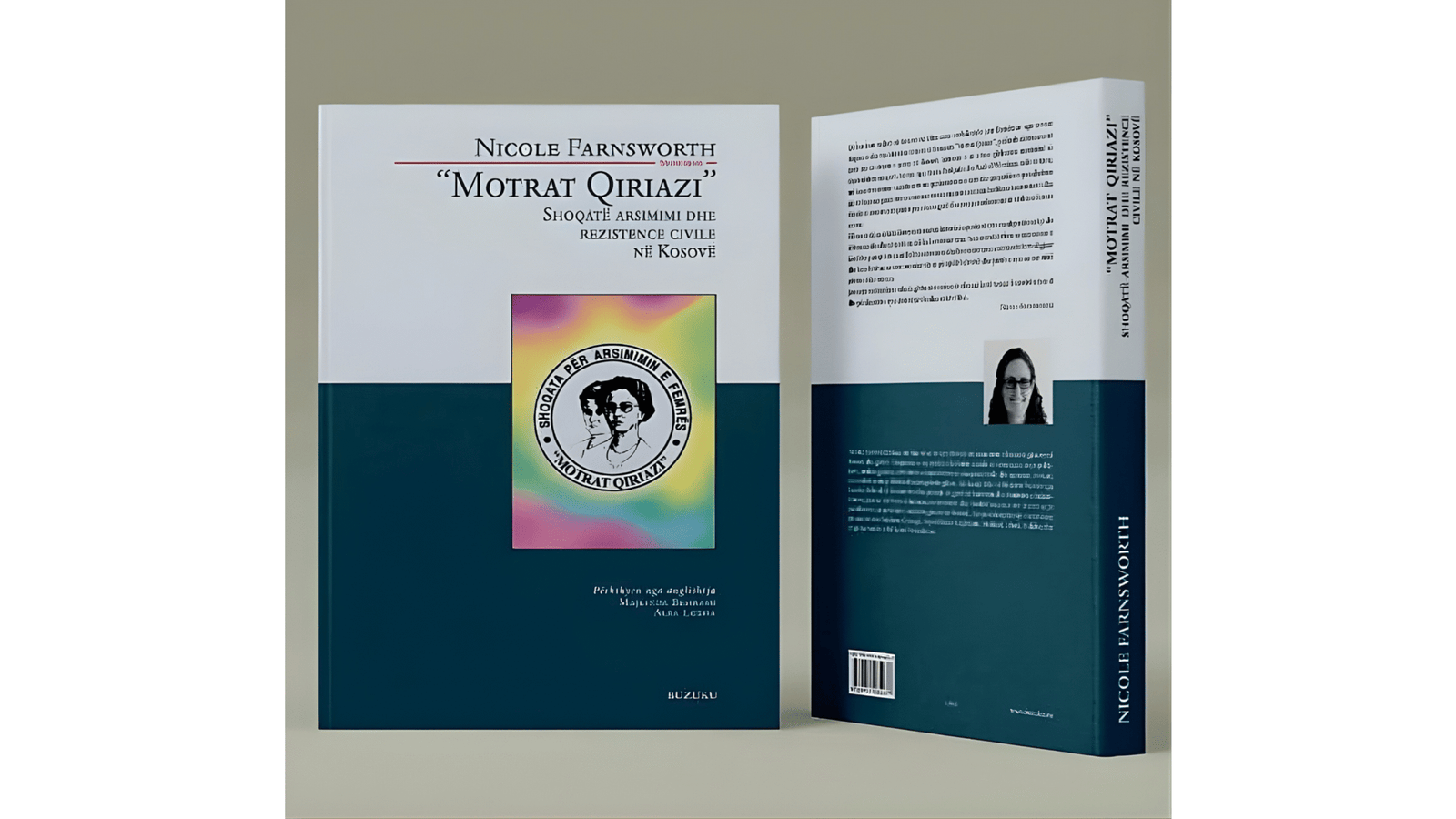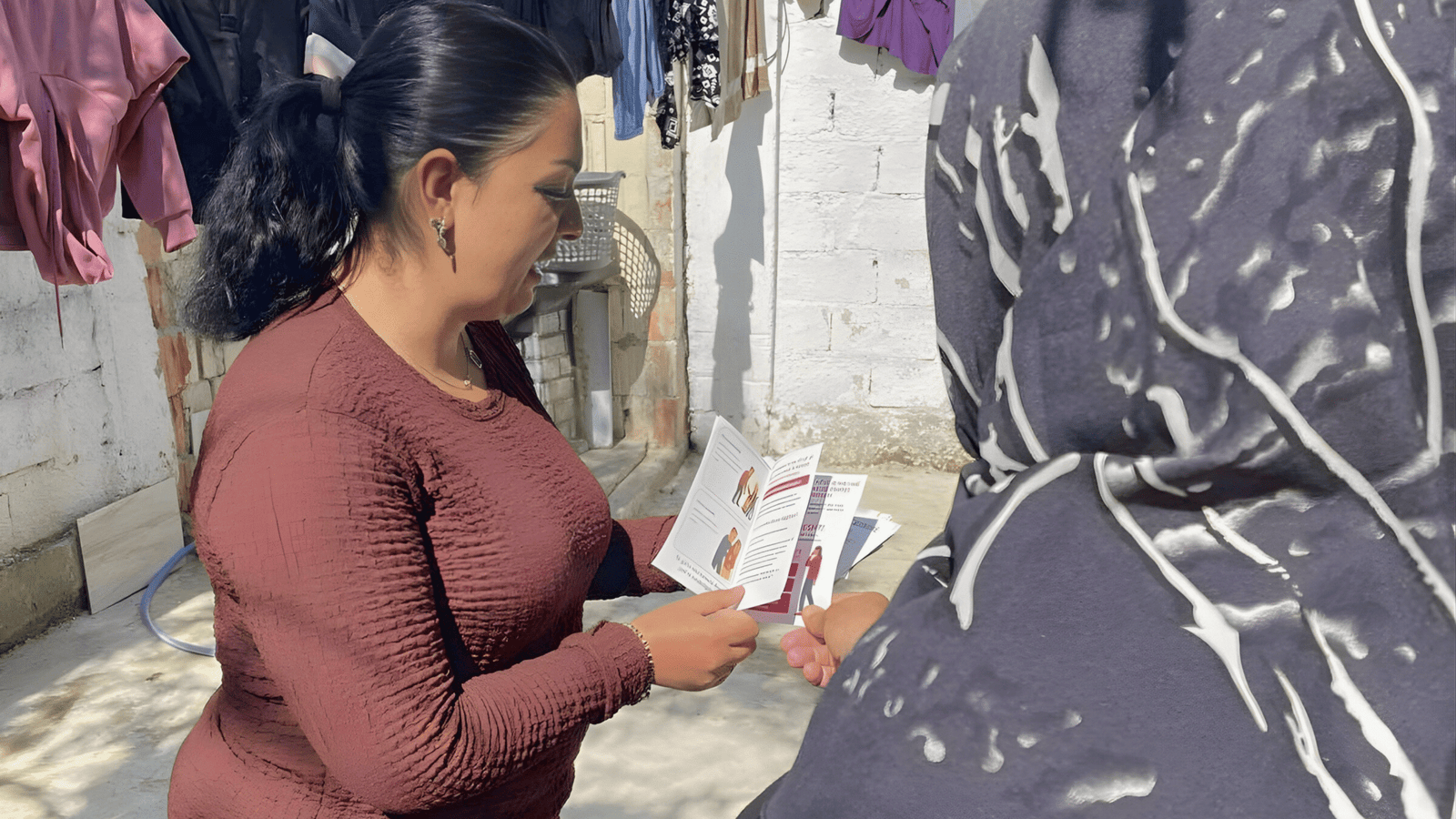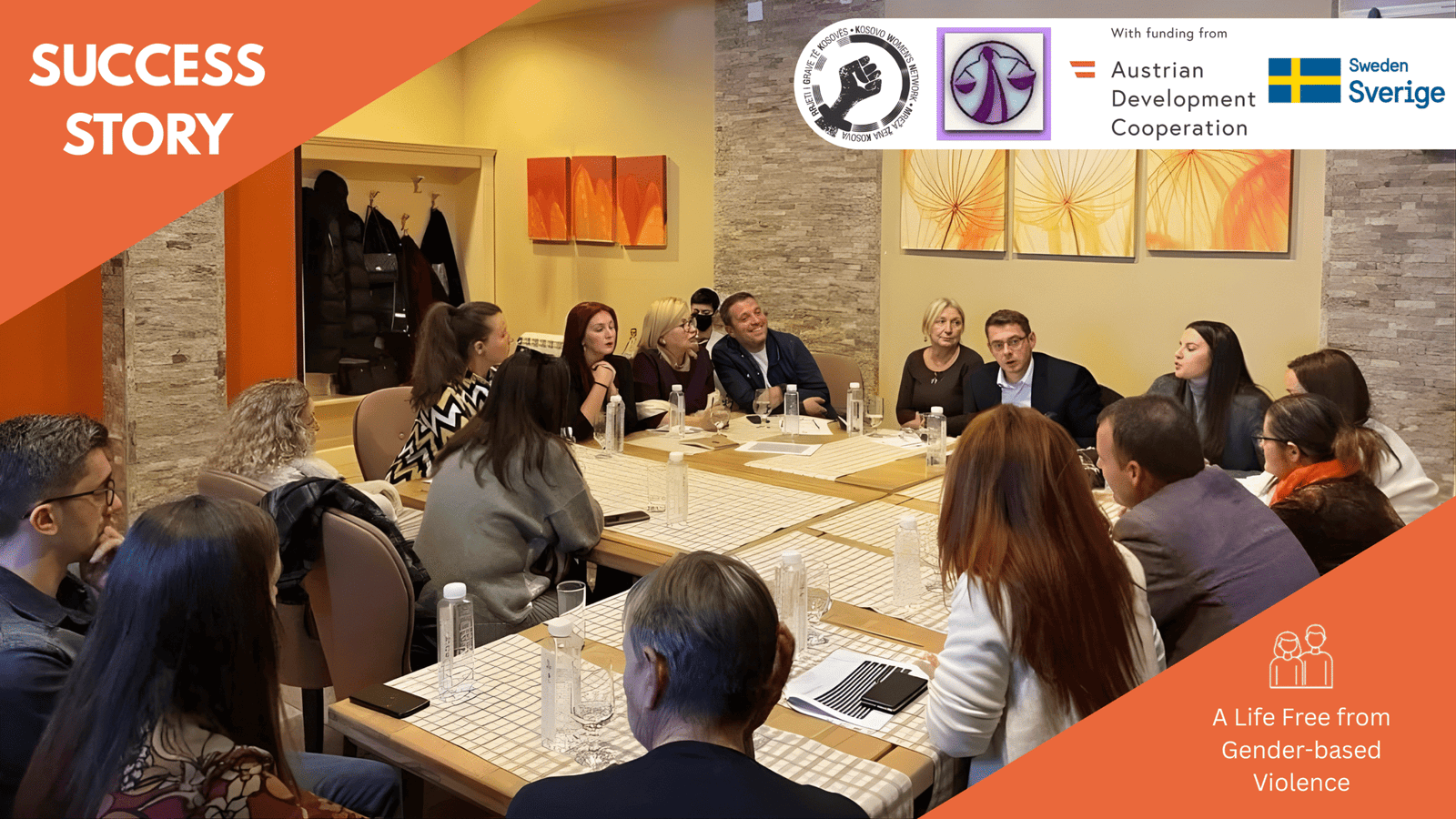More than 20 Roma, Ashkali, and Egyptian women and girls gathered at the primary school in Gadime, Lipjan, to discuss mental and sexual health, as well as to be informed about the numerous rights they have and can enjoy.
The driving force behind this initiative is the KWN member organization, Women Alliance for Integration (WAI), which conducts these lectures as part of the ‘Mobilization of Roma, Ashkali, and Egyptian women and girls for mental and sexual health rights’ initiative, supported by the Kosovo Women’s Network (KWN).
Adelina Qorraj Emini, the director of WAI, emphasizes the significant progress they have achieved in empowering women in the municipality of Lipjan.
“Our primary goal is to make them aware of the need to protect their rights and not remain silent. The more they overcome their fear, the more they mobilize to demand their rights. This is our primary objective,” she says.
Many participants from the Roma, Ashkali, and Egyptian communities have limited formal education, and in some cases, individuals among them may not even possess basic literacy skills. Consequently, addressing sensitive topics like mental and sexual health can present a challenge for the psychologists working with them. Nevertheless, during the lecture in Gadime and in numerous other sessions conducted by WAI, Fjolla Ibrahimi Starabaja strives to adapt her approach to meet the needs of women and girls, ensuring that the information is as accessible and understandable as possible.”
“The topics covered included stress, anxiety, and depression, both before and after childbirth. Given the limited or sometimes nonexistent formal education of these groups, I also conduct discussion sessions based on recommendations from the working groups, addressing the topics that interest them,” says Fjolla. She emphasizes that in each lecture, she endeavors to inform women about their rights.
“Very few women are aware of what they can demand from institutions, their rights, or how to report cases of violence. I can confidently state, not just as a psychologist but also as a social worker, that as a result of these meetings, a significant number of women have taken steps to report domestic violence,” she adds.
Both Fjolla and Adelina have engaged in discussions with women and girls from these communities regarding early marriages, exploring their legal and psychological implications. During these lectures, the significance of education was emphasized as a means to break the cycle of poverty and foster well-informed and empowered families.
WAI is the grant recipient of the 18th round of the Kosovo Women’s Fund, under the auspices of the KWN initiative “Further Advancing Women’s Rights in Kosovo II” funded by the Austrian Development Agency (ADA) and co-financed by the Swedish Agency for International Cooperation and Development (AIDS).







